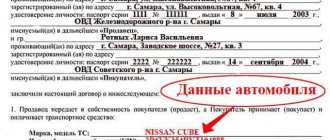Transferring money when buying an apartment is an important and responsible stage of the transaction. Since we are talking about large sums, it is important to take into account all the details so as not to be left broke. Even the safest options can have vulnerabilities. We will analyze all the methods of transferring money that exist in our material.
Prepayment methods
You liked the apartment and after several viewings, you decided to buy it. Often, to book housing, sellers ask for an advance payment. This is a guarantee for the buyer that the apartment will be his, and for the owner that the apartment will definitely be bought. Let's look at ways to make an advance payment.
Deposit
The buyer and seller enter into a deposit agreement . Indicate your full name, passport details, amount of advance payment and terms of return if the transaction does not go through. According to the law, there are several options for the development of events:
- If the buyer is to blame for the failure, then the advance payment remains with the seller;
- If the owner of the property refuses the transaction, then he returns the money to the buyer in double amount;
- If no one is to blame, but force majeure circumstances arise, then the money is returned to the buyer.
Important! The contract must contain the word “deposit” and then the rules specified above will apply. Otherwise, the prepayment turns into an advance payment.
Prepaid expense
Despite the fact that the deposit carries certain guarantees, most often in the real estate market there is an advance payment that performs only a payment function. According to realtors, it is used in almost 90% of cases. Moreover, the term itself is not in any article of civil legislation.
- If the seller refuses the transaction, then he must return the advance payment to the buyer;
- If the deal is broken, the money remains with the person who sold it.
The advance is practically not protected at the legislative level. And if you meet an unscrupulous seller, you may be left without money. The advance does not oblige anyone to anything. Even if you draw up a written agreement.
Security payment
This option of making an advance payment appeared several years ago and has already firmly entered the real estate market. Realtors call it a hybrid of an advance payment and a deposit.
The very term “security payment” suggests that it must ensure the completion of the transaction. There is no obligation to return the money in double amount, but if the transaction does not take place, either party can return the money.
- If it is the fault of the seller, then the buyer returns the amount;
- If it’s the other way around, then the money remains with the owner.
The transaction is declared invalid due to the inadequate condition of one of the participants
You arrive at the deal, begin the process of signing documents and realize that the seller is very drunk. Together with all the participants, you decide to wait a couple of hours for him to come to his senses. After a while, you get together again and sign the documents. Hurray, it's all done, you get the keys. But after a couple of weeks, the seller claims that he was drunk and does not remember anything: the deal is invalid, you must return the keys and move out of the apartment immediately.
How to prevent
If during a transaction one of the participants is under the influence of substances that alter consciousness, it may be recognized by the Civil Code of the Russian Federation Article 177. Invalidity of a transaction made by a citizen who is not able to understand the meaning of his actions or manage them as invalid. To prevent this, pay attention to whether the seller’s behavior differs from the usual - which you have already observed during the preparation stages for the transaction. If you understand that a person is, for example, drunk, then reschedule the transaction for another day. Even if this seems very inconvenient, it will definitely save you from possible problems in the future. And before the deal, get a good night’s sleep and don’t take anything “for courage.”
When should you transfer money?
The first part of the money, that is, the advance payment, can be transferred by agreement. For example, when viewing an apartment for the second time, when you are convinced that you want this particular property and intend to book it.
If you have a mortgage deal, then it’s easier here. You make the first part, the prepayment, in advance to keep the apartment for yourself. The second part, the down payment, can be given to the seller at the time of the transaction. And the rest will be transferred by the bank. When he does this depends on the credit institution: either on the day of the transaction, or after the transfer of ownership.
If the transaction is not a mortgage, then the transfer of the remaining part of the money occurs by agreement of the parties. For you, as a buyer, it is important to transfer money after all obligations have been completed. That is, only after the transfer of ownership has taken place and you have become the official owner of the home.
Consequences of delivery of premises of inadequate quality
It is possible that after the transfer of the apartment, the buyer discovered significant shortcomings that affected the quality of the housing, which were not specified by the seller, then in accordance with the law (Article 557 and Article 475 of the Civil Code of the Russian Federation). If defects are discovered, the buyer has the right to demand :
- eliminate deficiencies free of charge and in a short time;
- reimburse your own expenses that arise when independently eliminating deficiencies;
- reduce the price of the apartment (in proportion to the shortcomings).
In the event of any domestic disaster (for example, a short circuit in the electrical wiring, a fire, etc.), if the seller has not yet signed the act at the time of the incident, then he will have to deal with the consequences of the incident himself. If the document has already been signed, then all the problems then fall on the shoulders of the new owner .
Methods of transferring money
Real estate experts identify four main methods of transferring money that operate in the market.
Buying an apartment for cash
Buying an apartment for cash
The seller and buyer meet, sign documents and transfer money. It is best to do this in a bank, in a meeting room.
Important! It is worth transferring cash after the transfer of ownership. That is, after you officially become the owner and receive an extract from the Unified State Register of Real Estate in your hands.
Be sure to make a receipt, it will confirm that you have given the money and do not owe anything else to the seller. In the document, write down the amount, details of all parties, describe the property and its exact address.
According to realtors, transferring money in cash was popular in the 90s, but is now used less and less in transactions. Because sellers and buyers do not find this method convenient. Walking around with a large amount of money is dangerous; you need to count it correctly and not make a mistake.
Cashless payment when purchasing an apartment
Cashless payment when purchasing an apartment
When the buyer transfers money to the seller's account. Here it is important to specify the purpose of the payment: indicate that the funds were transferred under the purchase and sale agreement, as well as the address of the property that is involved in the transaction. Afterwards, you can at any time request a statement confirming that you actually transferred money. Unlike cash transfer and receipt, this method provides more guarantees that no one will deceive anyone.
Money can be transferred by agreement of the parties. But for you, the buyer, the later the better. That is, after the transfer of ownership. But often, if the seller urgently needs money, he may ask to send it in advance, since transfers can take up to five business days. After this, immediately ask for a bank statement, it will become your guarantee.
Money may be stuck for an even longer period if the seller’s details are incorrectly specified. Or, for example, a bank can block an account if a person has made some kind of suspicious transaction.
Safe deposit box when buying an apartment
Buying an apartment using a safe deposit box
The parties take the same cash and deposit it in a safe deposit box at the bank.
The seller and buyer must agree on the shore that they will use this method. Next, the parties enter into a locker rental agreement with the bank. There they state the amount of payment for the service; it starts from about 300 rubles, depending on the financial institution. It indicates who will have the keys, who will pay and what document is needed to open the safe.
Next, the parties must sign a purchase and sale agreement. Then the money is counted, packed in vacuum bags and placed in a cell.
Once the transfer of rights has taken place, the seller can open the safe and take the money. He must come with his key and a registered purchase agreement.
Important! The bank is responsible only for the safety of the cell. What you put there is of no concern to the creditor. Moreover, employees of a financial institution will not recalculate the amount; this is a headache for the buyer and seller.
Letter of credit when purchasing an apartment
Buying an apartment using a letter of credit
This method is increasingly gaining popularity. Its essence is almost the same as with a safe deposit box. Only you don't have to invest cash. The funds go to a special impersonal account that does not belong to either the seller or the buyer. The parties also enter into an agreement with the bank and specify all the nuances in it. The cost of the service will cost a maximum of two thousand rubles. Some financial institutions provide this service free of charge, but they stipulate in the contract a certain period for storing money.
If the dates are not specified, then the money will remain in a special account until the buyer becomes the owner of the apartment. As soon as the transfer of rights takes place, the funds will go to the seller automatically. Or he will be notified about the end of registration and he will personally need to come to the bank and show documents.
Unlike a safe deposit box, with a letter of credit the financial institution is fully responsible for how and what amount the buyer transfers to the seller.
Which method to choose is up to you. Compare all the pros and cons and think about what is more convenient for you. Discuss this point in advance with the seller so that there is no misunderstanding. And, most importantly, don’t make mistakes.
Preparation of documents
Prepare all documents in advance - collection may take up to two weeks. The buyer of the apartment can move into the new apartment as soon as you check out of it. This can be done at the passport office or MFC - write an application, and then you will be discharged in 5-14 days. To discharge a minor, you will need permission from the guardianship and trusteeship authorities. Be sure to check the set of documents with a lawyer or realtor. If they find a mistake, it could save you millions. By the way, what documents do you need to collect to sell an apartment? Already written in the previous article.
What should you not do when transferring money?
- Transfer money ahead of time. If you have not yet signed the purchase and sale agreement, and the seller is already asking you for money for some reason, do not agree. Otherwise, you may be left without an apartment and without money. Until your title is registered, you are not the real owner.
- Transfer money without documents. Don’t forget about the receipt and the purchase and sale agreement. These are important documents that will confirm that you definitely transferred the money. And if something happens, they will be useful to you in court. The same applies to prepayment. Do not transfer any advances without written confirmation. Otherwise you won't be able to prove anything.
- Giving money to the wrong person. This can happen if you don’t check the seller and give up on the documents. There is a risk of running into scammers who are selling other people's real estate. They can easily take advantage of your gullibility.
Therefore, check the documents before you are going to sign anything, much less transfer money. Look at the seller’s passport, check it with the papers for the apartment: a purchase and sale agreement or a certificate of inheritance , if he inherited the apartment from relatives. Also, review the title deed. This may be a paper certificate or an extract from the Unified State Register. Using it you can understand who the real owner is, study the real characteristics of the apartment and the presence of restrictions on housing.
To be sure, order a report based on the USRN extract from Rosreestr in advance and independently. Use the N.Reestr service . On the same day, you will receive in your email the most current and reliable data on the property you are planning to buy.
Text: Ksenia Chertova
After the transaction was completed, the apartment began to look different
At the final stage before purchasing, you meet with the seller in your future apartment or house. Everything is fine, you are happy and looking forward to moving, imagine how beautifully you arrange the dishes in the kitchen and hang the curtains in the living room, and place the chair and lamp in a cozy corner next to the socket.
The deal goes through, you move into your new home and discover that all the sockets have been ripped out, the baseboards have been stripped, the wallpaper has been scratched, and all the beautiful cabinets and nightstands have been taken away. You see bare walls and understand that repairs and additional expenses await you.
How to prevent
The contract must additionally specify what remains untouched after the keys are handed over and the previous owners move out. For even greater reliability, you can attach photographs of the apartment to the document at the time when you made the decision to purchase and signed the papers with the seller. In this case, when you receive the keys and move into the apartment, there will be no surprises for you.
Seller and buyer have disagreements over additional costs
You started the transaction, took into account various details, paid for the appraisal and insurance. And at the same time, you need, for example, the services of a realtor or lawyer to add additional clauses to the purchase and sale agreement. Or you transfer money through a cell or letter of credit. A dispute arises between you and the seller about who should cover such expenses.
How to prevent
Agree in advance with the seller who will bear the additional costs and how. It is best to fix them in the advance agreement: you will save your nerves, not spoil your relationship with the seller and not spoil your joy from buying a home.
Check list
This small list will help make sure that you do not miss anything important when preparing for such a significant event as buying an apartment.
- Take into account in the contract and record in the photo the form in which you receive housing.
- Check the people registered in the apartment before drawing up a purchase and sale agreement.
- When preparing for a transaction, take into account all the risks in the advance agreement, and not in words.
- Ask the seller for certificates from the IPA and ND.
- Discuss covering additional costs in advance.
- Decide in advance on the terms of mutual settlements.
- Make sure that all participants in the transaction are aware of what is happening.
How to calculate the amount of deduction
The maximum deduction amount is: 2,000,000 x 13% = 260,000 rubles. This amount can be applied to several purchased residential properties if their total cost is less than 2 million rubles. (clause 3 of article 220 of the Tax Code of the Russian Federation).
If real estate is purchased by spouses, then each of them has the right to a maximum deduction amount of 2 million rubles.
If a loan was taken out to purchase property, you can receive a deduction of no more than 3 million rubles for interest. The maximum deduction amount is: 3,000,000 x 13% = 390,000 rubles.









